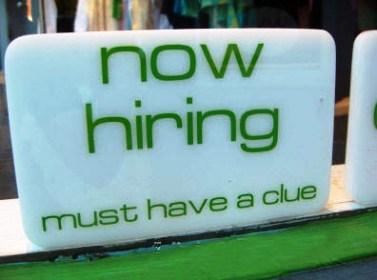 | « Back to article | Print this article |
Indian job market upbeat, no slowdown blues
The economic slowdown of 2008-09 is one Amit Suryavanshi would love to forget. Despite bagging a plum job offer from an international bank, Suryavanshi remained jobless for a good six months after graduating when the bank sent him a regret letter.
He passed from one of the top 10 B-schools, based in Mumbai.
Cut to 2012.
The slowdown has returned, but this time things are different. Suryavanshi is sitting on two job offers, wondering which to zero in on.
Click NEXT to read further. . .
Indian job market upbeat, no slowdown blues
An executive in the treasury department of one of the largest private banks in India, Suryavanshi says the job market had never been so kind to him.
So, when Jeff Joerres, chief executive officer at Milwaukee-based Manpower Group, says the strongest hiring plans are in India, where nearly six out of 10 employers in the services sector will add workers in the coming months, his optimism is not unfounded.
In 2008-09, even the premier Indian Institutes of Management found it difficult to place students.
Then, public sector companies had a field day recruiting students from the IIMs, with Union Bank of India hiring 40.
Click NEXT to read further. . .
Indian job market upbeat, no slowdown blues
But this time, the B-schools have already placed students, with consulting jobs topping the list.
While the B-schools dreaded reaching a 100 per cent placement figure, the pleasant surprise came when each student got at least two job offers.
B-schools did not need the PSUs to save the day for them.
"Last November, we were not sure how the placements would pan out. Companies were undecided about not only the hiring numbers but also if they would participate in the placements at all.
"However, the situation changed completely by the time we began the placements.
"It was finally good.
"Nearly 30 per cent of the companies have participated for the first time, and consulting firms recruited in good numbers," said Amit Dhiman, placement chairperson at the Indian Institute of Management, Calcutta.
Click NEXT to read further. . .
Indian job market upbeat, no slowdown blues
Head hunters say the hiring scene is cautious, but optimistic.
"The economy is still growing, though the growth rate has slowed.
"When the economy is growing, one needs talent to support the economy.
"This is why the job market has been upbeat," said Avdesh Mittal, partner at international leadership advisory firm Heidrick & Struggles.
For Ganesh Shermon, management consultant, KPMG, India is not enduring any significant recession at this point.
"Employment rates have improved. We are now just reeling under the after-effects of the past slowdown.
Click NEXT to read further. . .
Indian job market upbeat, no slowdown blues
"People are hiring for today and for the short term.
"They are definitely not hiring for the long-term," says Shermon.
A look at information technology sector hiring can put things in perspective.
In financial year 2009-2010, the sector hired a total of 90,000 people (direct job creation), whereas in FY2012, the industry, despite a difficult macro economic scenario, went on to hire 230,000 people.
Hiring in 2008-09 was the worst for the $80-billion IT export industry.
Click NEXT to read further. . .
Indian job market upbeat, no slowdown blues
The industry did away with its tradition of keeping bench staff.
Tier-I firms such as Tata Consultancy Services, Infosys Technologies and Wipro Technologies had bench staff of 30-35 per cent before 2008-09.
At Infosys, utilisation will be 72-75 per cent, which means lesser bench and, hence, better cost management.
While the top tier IT firms did not resort to firing employees, they deferred campus hiring dates by a few months.
Click NEXT to read further. . .
Indian job market upbeat, no slowdown blues
Though Shermon is quick to add that telecom, retail and fast moving consumer goods sectors are not doing well, sectors like infrastructure are comparatively better off as there is some spending, happening and this is lifting sentiment.
Muninder Anand, director, Information Product Solutions, Mercer, says, "Having been watchful and conservative in hiring for the last two quarters, companies have now consolidated their financial position and are ready to scale back on their growth trajectory, with a long-term view of the market opportunity."
Click NEXT to read further. . .
Indian job market upbeat, no slowdown blues
So, while aspirants may still be able to find jobs, the big-ticket hikes, caution personnel experts, would be too much to expect in a market like this.
"The HR consulting market is not being realistic. The prediction of double-digit salary growth is not sustainable in this economy.
"Also, I do not know from where all these jobs predicted by them would come from," said an industry expert.
Many companies, including the IT sector, have already predicted only single-digit increments this year.
Click NEXT to read further. . .
Indian job market upbeat, no slowdown blues
"At the leadership level, there is a 20 per cent increase for sure for people who have met their targets.
"But there are certain sectors where the performance has not been met, as projects have not taken off. Infrastructure and energy sectors have suffered," said R Suresh, CEO, Stanton Chase International.
HR experts explain that since 2010, companies have been cautious in their hiring strategies, avoiding attrition and pink slips.
"Since the companies have already been cautious, while the economy has suffered, hiring did not," said Sangeeta Lala, vice-president, TeamLease.
With inputs from Shivani Shinde









